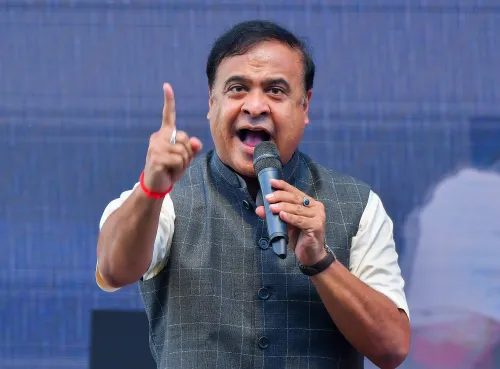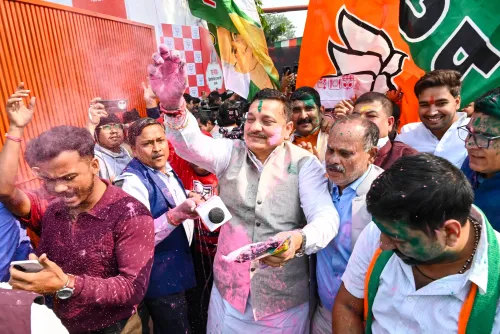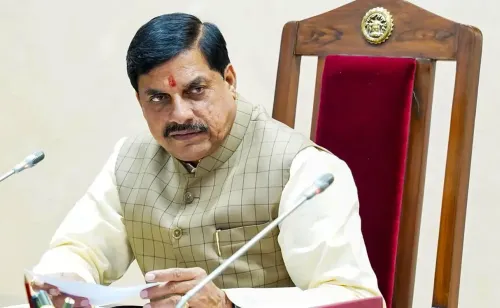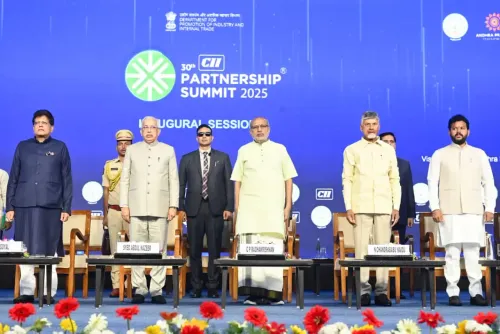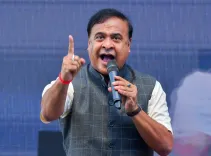EAM Jaishankar Emphasizes India's Commitment to Strong Ties with Africa and Japan
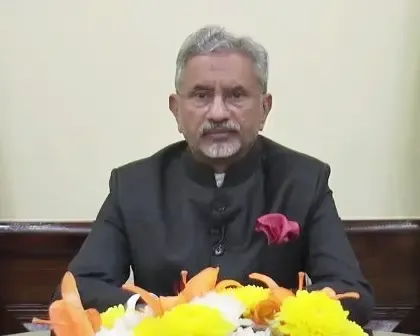
Synopsis
Key Takeaways
- India is committed to sustainable partnerships with Africa.
- India and Japan are collaborating to enhance Africa's development.
- India's initiatives focus on capacity building and technology transfer.
- India is Africa's fourth-largest trading partner with significant investments.
- Growth in Africa contributes to global stability and progress.
New Delhi, Feb 26 (NationPress) External Affairs Minister S. Jaishankar on Wednesday emphasized India’s enduring dedication to establishing mutually beneficial partnerships with Africa, setting it apart from extractive models of engagement.
During his address at the Japan-India-Africa Business Forum, he highlighted that India and Japan are well-positioned to assist Africa in achieving sustainable and inclusive development.
Jaishankar emphasized the profound and shared commitment between India and Japan to bolster their bilateral ties while also joining forces to promote economic growth in Africa.
“India and Japan share a relationship grounded in democracy, freedom, and the rule of law, along with a unified vision for a free and open Indo-Pacific. Over time, our bilateral relations have matured into a special strategic and global partnership,” he articulated.
Jaishankar noted that the Quadrilateral Security Dialogue (Quad), which includes India, Japan, the US, and Australia, further enhances bilateral cooperation across various sectors.
“As the Global South emerges as a potential engine for economic growth, it is essential to ensure its aspirations and interests are fully acknowledged on the global stage,” he continued. He also pointed out India’s role in securing the African Union’s full membership in the G20 during its presidency.
Jaishankar reiterated that India’s engagement with Africa is founded on long-term, sustainable partnerships.
“India’s approach to Africa has always been characterized by a profound commitment to building long-term mutually beneficial partnerships. Unlike extractive models, India focuses on capacity building, skill development, and technology transfer, ensuring that African nations not only gain from investments but also cultivate self-sustaining growth ecosystems,” he stated.
He cited significant initiatives such as the Indian Technical and Economic Cooperation (ITEC) program, the Pan African e-Network Project, and High Impact Community Development Projects (HICDPs), which have fortified Africa’s education, healthcare, and digital infrastructure.
In 2019, India inaugurated the e-Vidya Bharti and e-Arogya Bharti networks to deliver virtual education and healthcare services to African nations. To date, students from 19 African countries have registered for various undergraduate, postgraduate, and diploma programs under this initiative.
Jaishankar highlighted India as Africa’s fourth-largest trading partner, with bilateral trade nearing $100 billion.
“India has made a notable commitment to enhancing Africa’s connectivity and infrastructure, providing over $12 billion in concessional credit and completing more than 200 projects across the continent, including railways, power generation, agriculture, and water supply,” he remarked.
India’s developmental initiatives in Africa—ranging from power plants and transmission lines to cement, sugar, and textile factories—have generated local employment and revitalized communities.
“India’s profound and enduring engagement with Africa positions it as a natural bridge, both geographically and within the industrial value chain,” he added.
Jaishankar highlighted India’s potential to serve as a prime hub for Japanese companies looking to expand into Africa and the Middle East.
“Japanese investments, India’s robust industrial base and digital capabilities, along with Africa’s talent and growing consumer market, can unite to produce advantageous outcomes for all parties involved,” he stated.
He also pointed out the opportunity for India and Japan to reinforce resilient supply chains for Africa, especially in critical and emerging sectors.
“The growth and prosperity of Africa will not only benefit its populace but also contribute to broader global stability and economic advancement,” Jaishankar concluded.
With India and Japan leveraging their complementary strengths, Jaishankar reaffirmed that both nations are well-positioned to support Africa’s development in a sustainable and inclusive manner.

